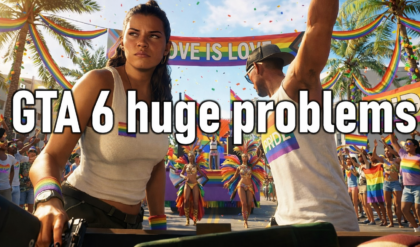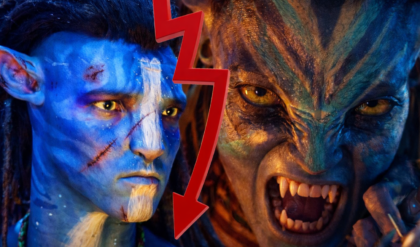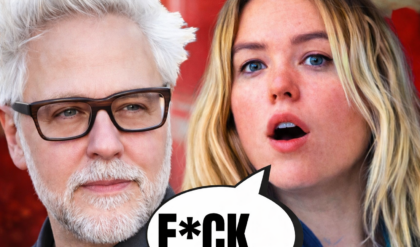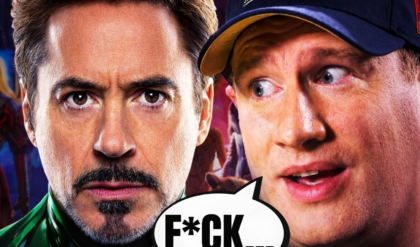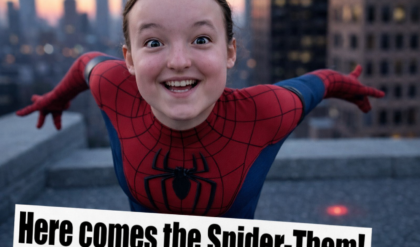The live-action remake of Disney’s Snow White and the Seven Dwarfs was meant to be a dazzling reimagining of a timeless classic, but instead, it’s become a cautionary tale of Hollywood missteps, cultural clashes, and public relations nightmares. At the center of the storm is Rachel Zegler, the 23-year-old star who plays Snow White, who has reportedly pointed to Peter Dinklage’s criticism of the project as a key reason for its disastrous reception. The film, which hit theaters on March 21, 2025, has grossed a mere $69 million domestically against a $270 million budget, earning scathing reviews and sparking heated debates online. But is Dinklage, the Game of Thrones alum, really to blame for the film’s failure, or is Zegler’s claim a deflection from deeper issues? Let’s unpack the saga that’s got everyone talking.
The Snow White Remake: A Project Doomed from the Start?
Disney’s decision to remake Snow White, the studio’s first animated feature from 1937, was ambitious but fraught with challenges. The original film, a cultural touchstone, is beloved for its groundbreaking animation and fairy-tale charm. However, its dated elements—such as the passive princess archetype and the portrayal of the seven dwarfs—posed problems for a modern audience. Disney aimed to update the story, casting Zegler, a Latina actress, as Snow White and Gal Gadot as the Evil Queen, while promising a more empowered narrative. Yet, from the moment the project was announced in 2016, it faced scrutiny.
The casting of Zegler, whose Colombian and Polish heritage didn’t align with the “skin as white as snow” description from the Grimm fairy tale, drew backlash from some conservative critics. Zegler defended her role, noting the character’s name in the remake stems from surviving a snowstorm as a baby, not her complexion. Meanwhile, the decision to reimagine the seven dwarfs as CGI “magical creatures” after backlash from the dwarfism community added another layer of controversy. These early decisions set the stage for a production plagued by delays, a fire on set, and a writers’ strike, all of which inflated costs and muddied the film’s vision.
Peter Dinklage’s Bombshell Critique
Enter Peter Dinklage, the Emmy-winning actor known for his role as Tyrion Lannister. In January 2022, while promoting Cyrano on Marc Maron’s WTF podcast, Dinklage didn’t hold back when asked about Disney’s Snow White remake. He called it a “fucking backward story about seven dwarfs living in a cave together,” questioning why Disney was proud of casting a Latina actress while still leaning on a narrative he saw as ableist. “Have I done nothing to advance the cause from my soapbox?” he asked, expressing frustration that the studio wasn’t rethinking the story more radically.
Dinklage’s comments sent shockwaves through Hollywood. Disney quickly responded, stating they were consulting with the dwarfism community to “avoid reinforcing stereotypes” and would take a “different approach” with the dwarfs. By the time the trailer dropped in August 2024, it was clear the dwarfs had been replaced with animated, non-human characters, with only one voice actor, Martin Klebba, having dwarfism. This pivot sparked its own backlash. Some, like wrestler and actor Dylan Postl, argued Dinklage’s remarks cost dwarf actors potential roles, while others felt the CGI creatures looked uncanny and soulless, alienating fans of the original.
Zegler’s reported claim that Dinklage’s criticism derailed the film likely stems from this moment. His public rebuke put Disney on the defensive, forcing a last-minute creative shift that many critics say weakened the film’s heart. The dwarfs, once central to the story’s charm, felt like an afterthought, and reviewers panned the film’s “lifeless visuals” and “muted color palette.” Zegler may believe Dinklage’s outspokenness set a negative tone that snowballed, turning public perception against the project before it even had a chance.
Zegler’s Role in the Controversy
While Zegler points to Dinklage, she hasn’t escaped scrutiny herself. Her own comments about the original Snow White stirred up trouble long before the film’s release. In 2022, at Disney’s D23 fan event, Zegler called the 1937 film “extremely dated” for its portrayal of women and described the prince as a “stalker.” She emphasized that the remake would focus on Snow White’s inner strength, not her love story, joking that it was the “PC Snow White.” These remarks, meant to highlight the film’s modern take, backfired with fans who felt she was disrespecting a cherished classic.
Zegler’s social media activity added fuel to the fire. In August 2024, after thanking fans for the trailer’s 120 million views, she posted, “and always remember, free Palestine.” The comment, made amid the Israel-Hamas conflict, drew ire from some who felt it politicized the film’s promotion. Reports suggest it led to increased death threats against Gadot, who is Israeli, prompting Disney to beef up her security. Later, after the 2024 U.S. presidential election, Zegler posted anti-Trump sentiments, further alienating a portion of the audience. Disney reportedly hired a “social media guru” to vet her posts, but the damage was done. Critics like Jonah Platt, son of producer Marc Platt, publicly blamed Zegler’s “personal politics” for hurting the film’s box office.
The Real Culprit: A Misfired Vision?
While Zegler and Dinklage have both been scapegoated, the film’s failure seems to lie more with Disney’s execution than any single individual. Critics have slammed the remake for its lackluster script, overreliance on CGI, and failure to capture the original’s magic. Reviews from outlets like The Guardian and Rolling Stone called it “exhaustingly awful” and “cringeworthy,” with even positive takes, like Variety’s, admitting it didn’t live up to expectations. The decision to scale back the premiere, limiting press access, suggests Disney knew the film was in trouble.
The dwarfs’ redesign, prompted by Dinklage’s critique, is a prime example of Disney’s reactive approach. Instead of casting dwarf actors or reimagining the characters thoughtfully, the studio opted for CGI, pleasing no one. Similarly, Zegler’s casting and the film’s “girl-boss” narrative were bold choices, but they clashed with the nostalgia-driven expectations of Disney’s audience. The studio’s attempt to please everyone—progressives, traditionalists, and the dwarfism community—resulted in a film that felt disjointed and uninspired.
The Fallout and What’s Next
The Snow White debacle has sparked broader questions about Disney’s live-action remake strategy. Once a box-office juggernaut with hits like Beauty and the Beast and The Lion King, the studio has struggled with recent flops like Dumbo and Peter Pan & Wendy. Snow White’s failure, with a global haul of $145 million against a budget nearly twice that, may force Disney to rethink its approach. Upcoming projects like Lilo & Stitch and Moana are less likely to face the same cultural baggage, but the pressure is on to deliver.
For Zegler, the fallout is complicated. While some see her as a scapegoat, unfairly targeted for her politics and casting, others argue her outspokenness alienated audiences. Yet, her performance has been a rare bright spot in reviews, and supporters, including actress Melissa Barrera, have praised her integrity. Dinklage, meanwhile, has remained silent since his 2022 comments, but his critique undeniably shaped the film’s trajectory. Whether he bears responsibility or simply called out a flawed project early, his influence looms large.
A Tale of Missteps and Missed Opportunities
In the end, blaming Dinklage or Zegler misses the bigger picture. Snow White’s failure is a collective one, rooted in a studio trying to navigate a cultural minefield without a clear vision. Dinklage’s criticism highlighted real issues with the original story, but Disney’s response was half-hearted. Zegler’s comments and posts stirred controversy, but they didn’t sink the film alone. The true poison apple was a production that lost sight of what made Snow White special: its heart, its charm, and its ability to bring people together.
As Hollywood watches this drama unfold, one thing is clear: the Snow White remake will be studied for years as a case study in what not to do. Whether Disney learns from it—or continues to point fingers—remains to be seen. For now, the fairy tale has no happy ending, but the conversation it’s sparked is far from over.
